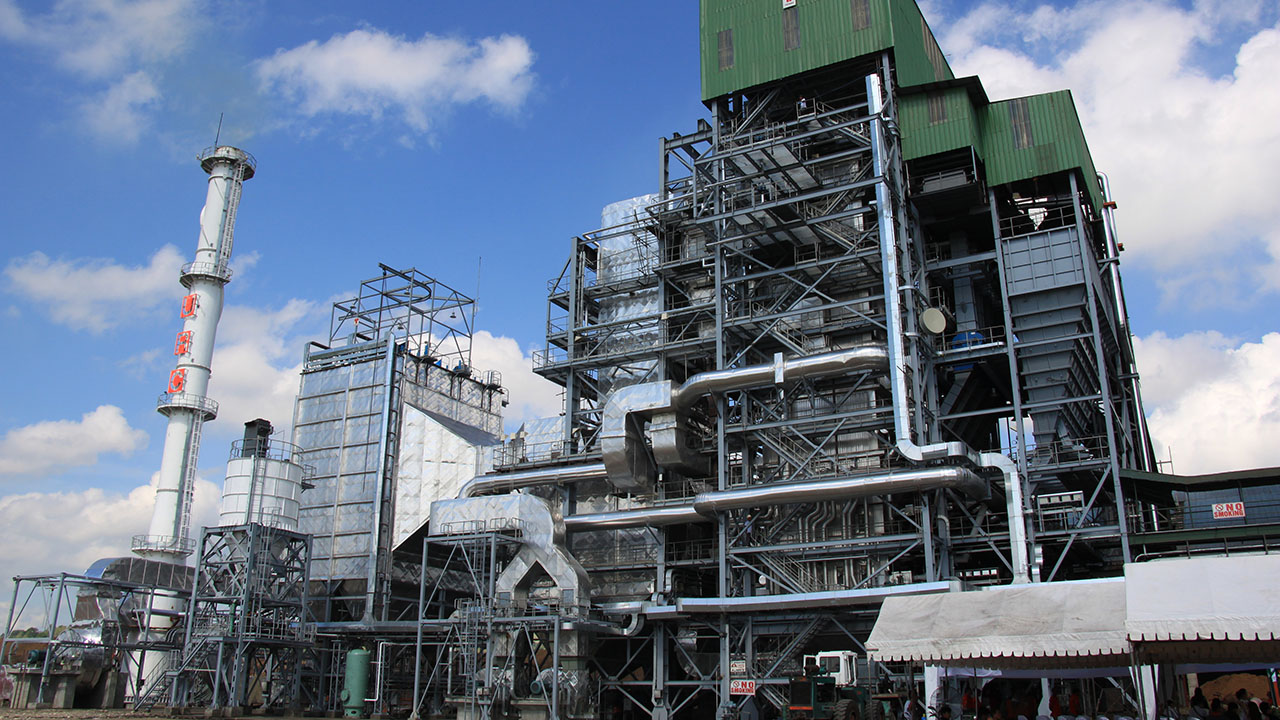Energy security is among the top concerns of the Philippines as a developing economy. Instinctively, the response to such a challenge is to prudently manage the existing supply of fuels such as coal and oil, upon which the country’s energy mix has been mostly based. However, with growing worries on the environmental impact as well as the rising cost of these non-renewable sources of energy, exploring other sources has become urgently necessary.
One of the often overlooked but most promising alternative energy sources is biomass—organic matter that can be used as fuel for running vehicles, generating electricity and many other power needs. Biomass is considered a renewable source of energy because it comes from plants, which can be propagated. Utilizing biomass also helps make better use of organic waste.
Most importantly, with the Philippines being a largely agricultural nation, biomass poses great potential as a new, affordable and thoroughly reliable energy source.

URC's biomass-fired cogeneration plant in Kabankalan, Negros Occidental. SURE
Fuel From Sugar
Universal Robina Corporation (URC), one of the most established Filipino food and beverage manufacturing companies, is cognizant of such potential especially with its involvement in the sugar industry.
With sugar mill byproducts as one of the primary sources of biomass, URC has taken the initiative to help secure a more stable energy future for the country by maximizing its resources and operations—forming the SURE or Sugar and Renewables business.
One of the thrusts of URC SURE is developing renewable energy through a biomass-fired power cogeneration plant located in SONEDCO, Kabankalan City, Negros Occidental. Using bagasse, a byproduct of sugar milling, as fuel for the boiler, the plant produces 36 megawatts of power, of which 20 megawatts go to the national electricity grid.
URC SURE also operates a distillery that produces fuel-grade anhydrous ethanol from molasses, which is a by-product of sugar production. Ethanol is vital for blending with gasoline in order to improve fuel efficiency in vehicles and to replace the pollutant additives in the gasoline. The distillery throughput is 100,000 liters of fuel ethanol a day.
A Renewable Energy Future
All of these are made possible given the extensive capacity of URC SURE, with its six sugar mills and three refineries across the country.
As the country’s top producer of raw sugar, URC has a total output of 417,000 metric tons accounting for 17 percent of total domestic production. It operates six sugar mills and refineries across the country with a combined capacity to process 40,000 tons of sugar cane and 32,000 bags of refined sugar per day. URC is the country's third-largest supplier of refined sugar, with actual production of 2.6 million bags per year.
By strengthening innovation in renewable energy sources such as that from sugar byproducts, URC SURE helps improve the country’s independence from non-renewable fossil fuels, especially imported petroleum. In order to institutionalize and ensure the growth of the industry, the company also plays an active role in organizations such as the Ethanol Producers Association of the Philippines (EPAP), undertaking advocacies and pushing for the welfare of biomass and alternative fuels.
Just recently, ethanol producers have been safeguarding the continued implementation of the Biofuels Act of 2006, which independent oil producers have sought the Department of Energy (DOE) to suspend in light of rising inflation.
The act mandates a 10-percent bioethanol blend in gasoline products. However, more than merely lowering the cost of the fuel, it is vital in ensuring countryside development and the improvement of working conditions and livelihood opportunities for sugarcane farmers.
The real challenge lies in making more and more Filipinos aware that by advocating and patronizing alternative sources of energy and fuel such as biomass, they get the sweetest deal possible—a win-win situation for farmers, enterprises, consumers and ultimately, Mother Nature as well.
For more information on URC Sugar and Renewables, visit www2.urc.com.ph


